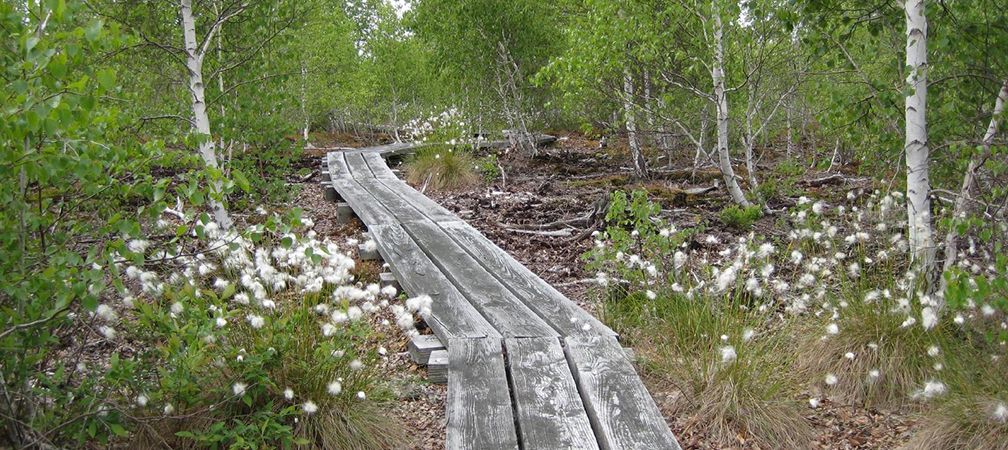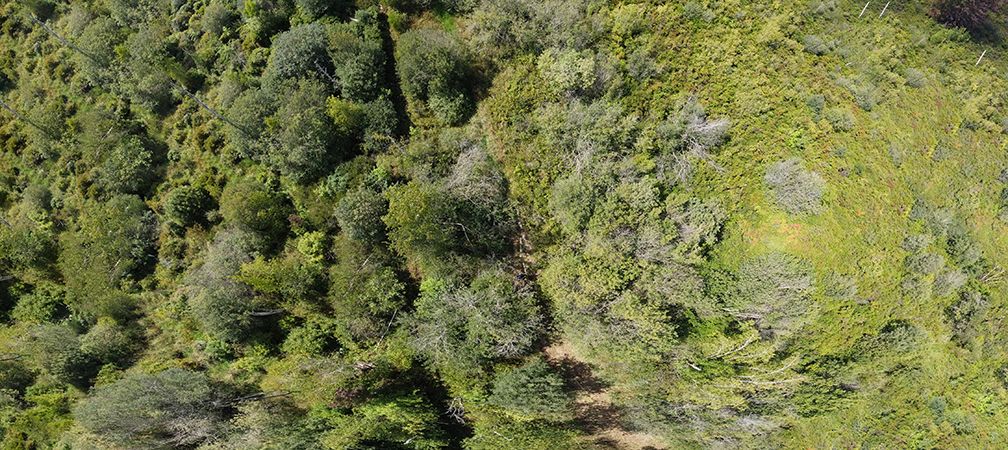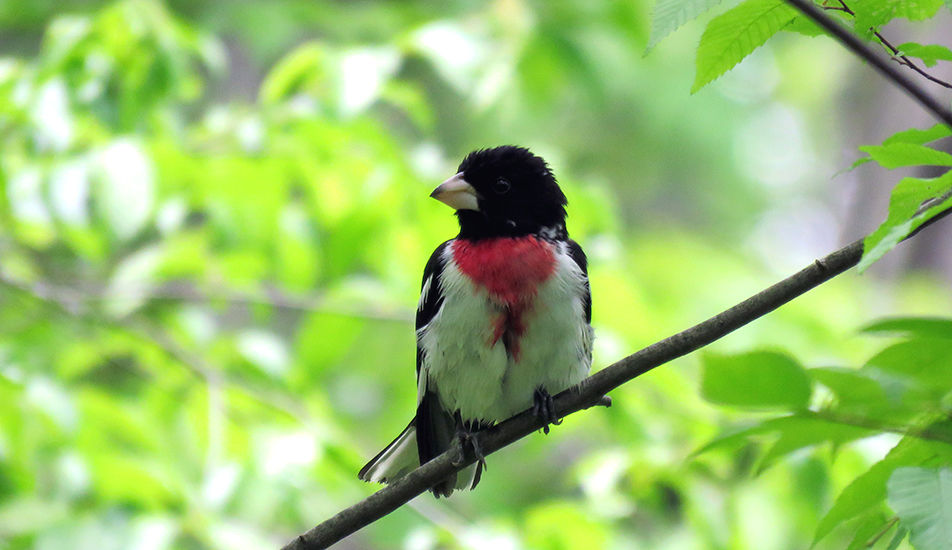Ontario Nature Blog
Receive email alerts about breaking conservation
and environmental news.
© Lora Denis
Wainfleet Bog, early spring meltwaters © Noah Cole
Bogs play a vital ecosystem role. Acting like a sink, they absorb rainwater, store it underground and then slowly release it into nearby streams. Bogs are also key to flood management and prevention since they absorb runoff and help to prevent soil erosion, hence the need to preserve and restore these important greenspaces.
World Bog Day is celebrated every year in July. This year, the Niagara Peninsula Conservation Authority (NPCA) joined the celebrations to shine a spotlight on the importance of bogs and the unique ecological gem that it proudly takes care of – the Wainfleet Bog.

The Wainfleet Bog Conservation Area is located in the Township of Wainfleet and City of Port Colborne and is part of the only bog wetland in the Niagara Peninsula. It is provincially significant and is the largest remaining bog within Southern Ontario, providing habitat to a variety of unique plants and animals. The underlying peat material has live sphagnum moss and other bog plants growing on top, like Labrador tea, cotton grass and leatherleaf, making it different from other wetland areas.
Relatively young in geologic terms, this domed bog was formed between 12,000 and 5,000 years ago as the glaciers from the last Ice Age melted and retreated. Water ponded in the low, flat land behind the adjacent Onondaga Escarpment, which prevented surface water from draining south to Lake Erie. Over time, this open water area filled in as plants died and provided habitat for flora and fauna able to withstand the acidic and low nutrient soil conditions.

As a result of more than two hundred years of expanding agriculture, peat extraction and transportation activities within and around the bog, it decreased in size and function. The remnant bog is presently 1,460 hectares (3,607 acres).
Since 1996, NPCA has dedicated immense efforts to restoring the Wainfleet Bog and slow the factors degrading this unique ecosystem. The west half of the property has received rehabilitation activity, while the east half is maintained as status quo for existing species to adapt to changes.
The following recovery and rehabilitation activities have been completed:

The involvement and assistance of many partners and stakeholders has made this rehabilitation project a reality and includes local community members, nature and conservation clubs, schools, partner municipalities and government agencies through funding, on-site labour, and assistance with surveys, inventories and monitoring.
The NPCA is committed to preserving and restoring the Wainfleet Bog, which functions as the heart and lungs of the Niagara Peninsula watershed. Further to the 1997 Wainfleet Bog Steering Committee, the NPCA established the Wainfleet Bog Advisory Committee in 2022 to enhance collaboration and expertise in the rehabilitation of the site.
For those looking to explore a natural and historical landmark, the bog is worth a visit. When guests are not looking at the unique wildlife growing around them, they can see the historical machines and railroad tracks used for peat extraction. You can also see strips of preserved peat soil and learn first-hand from NPCA staff about the Wainfleet Bog’s ability to absorb large amounts of carbon dioxide from the atmosphere, in addition to a lengthy list of unique environmental benefits.
Trails and boardwalks await to wind you through this wet, wild and wonderful place. There is also plenty to see and experience as bog plants, butterflies, migrating songbirds and animals make their homes in the restored habitat of the area.
For more info, visit the NPCA webpage or contact NPCA at 905-788-3135; info@npca.ca. You can follow them on social @NPCA_Ontario.
By the Niagara Peninsula Conservation Authority
Gananoque Lake Nature Reserve © Smera Sukumar